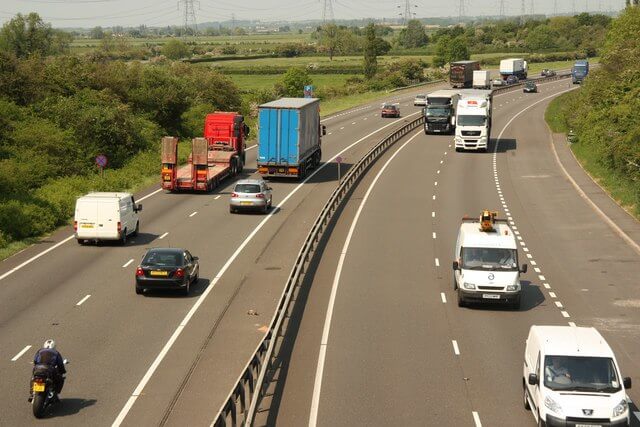
A report by the International Council on Clean Transportation (ICCT) has found that 13 million diesel cars, sold between 2009 and 2019, are still on the roads in the UK and Europe, producing “extreme” levels of toxic air pollution. The ICCT report also highlighted that an additional six million diesel vehicles have “suspicious” levels of emissions. The best-selling diesel models from this period, with the highest emissions, are Euro 5 versions of the Volkswagen Passat and Tiguan, Renault Clio, Ford Focus, and Nissan Qashqai.
The ICCT first discovered in 2015 that many diesel cars were highly polluting, emitting far more nitrogen oxides on the road than in official testing. This discovery led to a more rigorous testing regime being introduced in the European Union (EU) in 2019. However, based on extensive testing evidence, the ICCT has now revealed that highly polluting diesel vehicles remain on the roads.
The test data analysed included official government testing, independent measurements using equipment attached to exhausts, and roadside measurements of the real-world emissions of vehicles as drivers passed by. The last category, which comprised 700,000 measurements in five European countries, showed that approximately 75% of diesel engine types exceed the “extreme” threshold.
The EU has set increasingly strict limits for exhaust emissions over the last three decades, with manufacturers meeting these by adding new technologies to all vehicles. The ICCT claims that it is “almost certain” that cars with “extreme” emissions were using a defeat device, a piece of software that alters or deactivates the vehicle’s emissions technologies under certain conditions.
Rulings by the court of justice of the European Union (CJEU) since 2020 have clarified what constitutes an illegal defeat device, and the testing data, plus documents submitted by some manufacturers to governments, suggest many models still have these.
Environmental law charity ClientEarth and other groups have used the new ICCT evidence to send legal complaints to the UK, French, and German governments, saying they have failed to tackle an apparent “epidemic” of defeat devices as the law requires them to do. Both the ICCT and ClientEarth said the proportion of highly polluting vehicles that have been recalled is small, and that there is no transparency over whether repairs are effective.
Air pollution continues to be the biggest environmental health hazard in Europe, according to the European Environment Agency. Nitrogen dioxide emissions, largely produced by diesel vehicles, have been estimated to result in 64,000 early deaths every year.
Michelle Meyer, at the ICCT, said, “Over seven years have passed since the Dieselgate scandal first broke. Yet, due to limited corrective action, these vehicles continue to operate across Europe today, harming the health of all who are exposed to the air pollution these emissions create.”
ClientEarth lawyer Katie Nield said, “It’s astounding to see that so little has changed [since 2015]. We’re sending legal complaints to three national governments to demand that the dirty legacy of Dieselgate is addressed once and for all. This was a betrayal of consumer and public trust, and authorities cannot continue to let auto manufacturers off the hook.”
A spokesperson for the European Automobile Manufacturers’ Association said, “Court rulings and more recent European Commission guidance have shown all parties how important it is to have well-written, clear legislation – particularly in this case, as emissions control is so complex. Previous Euro steps for cars and vans unfortunately did not deliver sufficient clarity. We note that the ICCT report acknowledges that official government reports did not conclusively identify any vehicles employing defeat devices.”
A spokesperson for Volkswagen said: “All Volkswagens comply with the legal limits of the emission standards that applied at the time of their initial registration. None of the Volkswagen vehicles mentioned contain an inadmissible defeat device.”
A spokesperson for Nissan said: “Nissan is committed to complying with applicable emissions requirements in all markets. Emissions standards and vehicle testing regimes have evolved considerably in recent years and continue to do so.”
Renault and Ford did not respond to requests for comment.
A DfT spokesperson said: “This government is committed to decarbonising transport, investing £2bn into electric vehicles, ending the sale of petrol and diesel cars and vans by 2030 – with all new cars and vans being zero emission at the tailpipe by 2035.
“Abuse of the system is not acceptable and since 2016, we have massively increased oversight of emissions tests and established a specialised unit to test vehicles in the real world, as well as in labs, and investigate suspicious practice – and are looking to bring forward stronger powers.”
——————————————————————————
At Natural World Fund, we are passionate about stopping the decline in our wildlife.
The declines in our wildlife is shocking and frightening. Without much more support, many of the animals we know and love will continue in their declines towards extinction.
When you help to restore a patch of degraded land through rewilding to forests, meadows, or wetlands, you have a massive impact on the biodiversity at a local level. You give animals a home and food that they otherwise would not have had, and it has a positive snowball effect for the food chain.
We are convinced that this is much better for the UK than growing lots of fast-growing coniferous trees, solely to remove carbon, that don’t actually help our animals to thrive.
This is why we stand for restoring nature in the UK through responsible rewilding. For us, it is the right thing to do. Let’s do what’s right for nature!
Support our work today at https://naturalworldfund.com/ and join in the solution!

